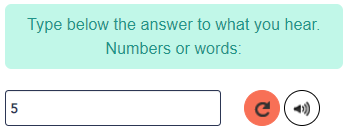Compare Surety Bond Insurance Rates
Learn more about the factors that dictate your surety bond insurance rates, compare top insurers, and save.
 Your information is secure.
Your information is secure. Surety bonds
Bonds that act as a contract between business, a client and an insurance carrier, it often guarantee the insurer will reimburse the client if business fails to deliver on a contracted service.

What are surety bonds?
Surety bonds act as a contract between a business, a client, and an insurance company. They guarantee the insurer will reimburse the client if the business fails to deliver contracted services.
When do businesses need surety bonds?
Surety bonds are often required by client contracts or local regulations. A surety bond reassures your client they will be reimbursed by an insurance company if your business doesn’t complete a project, breaks the terms of a contract, or fails to adhere to regulations.
There are several different types of surety bonds. For example, fidelity bonds protect a business and its clients from dishonest employees and license / permit bonds guarantee a business will fulfill an obligation. Read more about what surety bonds cover.
You may need a surety bond to:
- Fulfill a client contract
- Fulfill a government contract
- Legally conduct business in a profession
- Assure clients your business is reliable




Surety bonds help attract clients
Even when it’s not required, a surety bond is a way to prove your business is reliable. It may give you an edge over non-bonded competitors, which could make the difference between winning and losing a project.

Cleaning businesses may need janitorial bonds
Janitorial bonds are a type of fidelity bond often needed by cleaning companies. If one of your employees steals from a client or breaks their property, your insurance company will reimburse the client up to the amount included in the bond.

Certain professionals may need license / permit bonds
Depending on your profession, you may need a surety bond to get a business license or a permit. For example, in most states notaries public need to get bonded (obtain a bond) before they can legally go into business. Contractors and construction companies typically need surety bonds, too. The amount is specified by state law.
Surety bonds differ from most insurance policies
Surety bonds do not work like standard small business insurance policies, which pay out claims to the policyholder. Instead, surety bond claims are paid to the client. For example, if a construction company fails to complete a project, the insurance company reimburses the client.


What's the difference between being licensed, bonded, and insured?
A company is bonded when it has a surety bond. It's insured when it has other insurance policies, such as general liability insurance or workers' compensation insurance. Finally, it's licensed when it has obtained the licenses necessary to operate legally.
What do surety bonds cover?
Surety bonds guarantee that an insurance company will reimburse your client when your business fails to complete a project or fulfill a contract.
How much do surety bonds cost?
Surety bond costs are primarily determined by the value of the bond. Your industry risk and credit rating can also affect the premium.
Most small business owners pay between $125 and $250 per year
for a surety bond and some pay less than $125 per year.

















